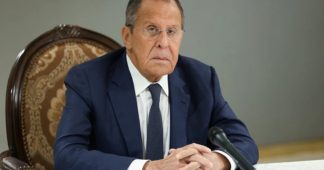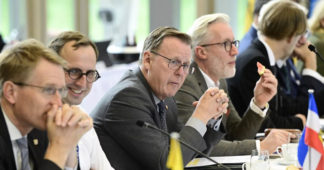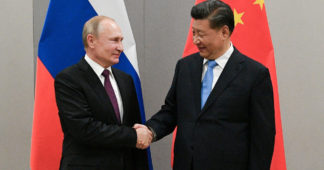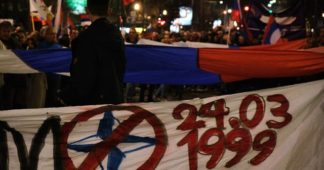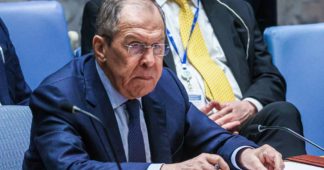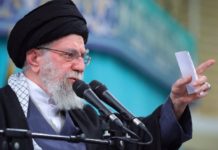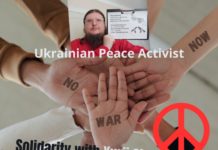by Sergey Lavrov
published by Rossiyskaya Gazeta, August 1, 2025
Marking the 80th anniversary of Victory in the Great Patriotic War and World War II in 2025 serves as an occasion for us to recall and reaffirm the importance of peace which came at such a high cost for our forefathers. We must also be mindful of how fragile this peace architecture is. In fact, its integrity hinges upon the ability of countries and their people to engage in coordinated collective action. Back in 1945, the year of Victory, major powers realised the need to overcome their differences for the sake of the humankind as a whole. This paved the way for establishing the United Nations as one of the key derivatives of this vision. In fact, the purposes and principles set out in the UN Charter remain relevant to this day and are in step with the reality of an emerging multipolar world order.
But there is another international event which happened precisely 50 years ago and is worth commemorating. This is when the Helsinki Final Act of the Conference on Security and Cooperation in Europe (CSCE) was signed. It became a landmark event in consolidating the post-war architecture based on the framework resulting from the Yalta and Potsdam conferences. Those camping on unfriendly positions towards Russia seek to diminish and sweep under the carpet the fact that our country, which was the USSR at that time, played a leading role in the Helsinki process, while also distorting the objectives the Soviet leaders were pursuing. We are facing groundless and unappealing accusations of undermining the European security framework, and politicians in the EU and NATO have made no secret of their intention to re-write the outcomes of World War II and do not shy away from concocting barbaric fakes for that purpose.
But the historical truth is that the Soviet leadership had a clear understanding from the very beginning that the Soviet people who survived the dark years of war needed to enjoy peace and calm in the new environment with two opposing blocs. Diplomacy textbooks and memoires offer an exhaustive account of how the Helsinki agreements came to be. Nevertheless, I believe that I must mention that it was Moscow which came forward with a proposal to create a collective security framework in Europe back in 1954, but our former allies from the anti-Hitler coalition rejected this initiative. Later, in the second half of the 1960s, it was once again the Soviet leadership which spoke out in favour of convening the CSCE for devising a single European security architecture. This time, Western countries supported this idea, at least in principle. The world had to experience several shocks, including the Cuban Missile Crisis, before NATO realised the need to improve the legal framework by signing new treaties.
Adopted on August 1, 1975, the Helsinki Final Act resulted from many years of hard work. Efforts to overcome confrontation focused on ensuring inclusive and comprehensive security on equal terms for all. This security concept included the military and political, economic and humanitarian dimensions. The Helsinki Final Act sets out ten principles based on this vision and operates as a unique instrument since it was adopted by consensus. After the CSCE evolved into the Organisation for Security and Cooperation in Europe (OSCE) in 1995, it developed this architecture in its documents. Today, this organisation brings together 57 member states. Strictly abiding by the Helsinki Principles could have guaranteed peace and security for all the signatory states.
But it is now clear that the West was not serious about fulfilling the commitments it assumed at that time.
Looking back, we can conclude that our country and the West pursued diverging objectives when launching the Helsinki process. The USSR believed that its main goal consisted of achieving security guarantees and facilitating peaceful development. This is where the principle of mutually recognising the inviolability of frontiers based on the outcomes of World War II stems from. “Sealing European borders and ensuring their inviolability is the main outcome of my efforts… If European countries refuse to abide by the Helsinki agreements, and start violating them, … war will make its comeback in Europe.” Andrey Gromyko’s words can be viewed as a prophecy. The principle of inviolable frontiers was violated when Slovenia and Croatia unilaterally separated from Yugoslavia in 1991 and when Germany became first to recognise their independence by breaking the ranks within the European Union and NATO, only to be followed by the West in general.
Our Western neighbours invariably turned the other OSCE consensus principles inside out to suit their purpose or completely disregarded them. They acted implicitly to gain information about the Soviet Union’s military and economic potential and to erode domestic law and order in our country, using various methods, including the enforcement of intrusive obligations on human rights issues. NATO and EU countries did not consider it necessary to respect the Helsinki principles, while forcing others to implement them selectively, inasmuch as this suited the West’s interests. It is for this reason that they also sacrificed the rule of consensus.
Irreparable damage has been done to the first basket, the military-political dimension of the Organisation. You may remember that over time the member states have unanimously approved a number of fundamental documents that declared the indivisibility of security, meaning that no country has a right to strengthen its security at the expense of others’ security, and no country or organisation should strive for dominance in Europe. This principle has been formalised, in particular, in the decisions of the heads of state and government adopted at the summits in Paris (1990), Istanbul (1999) and Astana (2010).
However, while adopting these and other high-flown declarations, the West was doing exactly the opposite, increasing NATO’s eastward expansion to the detriment of the interests of Russia and many other countries. They refused to hold serious discussions at the OSCE and the Russia-NATO Council (established in 1998) on measures that could at least offset the negative consequences of the bloc’s expansion for Russia’s security. As a result, all the above-mentioned consensus OSCE documents on indivisible security remained on paper. The West signed them but broke its promise, continuing the policy of advancing NATO’s military infrastructure directly towards our borders. At the same time, it promoted the image of Russia as a threat to peace.
Western countries have breached all the OSCE agreements on arms control and confidence-building measures. Russia has appealed to the conscience of Western elites more than once, inviting them to coordinate reliable security guarantees based on the fundamental commitment adopted within the OSCE.
The last such appeal was issued in December 2021, when Russia submitted the drafts of legally binding documents. Washington and Brussels arrogantly rejected them, saying that nobody has a right to restrict NATO’s expansion, including by drawing Ukraine into the alliance. That has dispelled the few remaining doubts, if there were any: NATO was preparing to inflict a “strategic defeat” on Russia by the proxy of the Kiev regime, which they brought to power in 2014 in a bloody coup carried out contrary to the guarantees issued by Berlin, Warsaw and Paris. That conclusion was later confirmed by Merkel, Hollande and Poroshenko, who have publicly admitted that their signatures under the Minsk agreements in February 2015, which were done to put an end to the conflict in Donbass launched by Kiev, were a lie and that they only signed them to supply Ukrainian Nazis with weapons for a war against Russia.
This has left us with no other choice than to start the special military operation to ensure reliable safety for Russia and protect the Russian and Russian-speaking citizens and their rights whom the Kiev regime was openly destroying.
Europe is deeply immersed in Russophobia, and its militarisation is essentially becoming uncontrollable. There are more than enough facts of this, for example, the statement by the European commission president to mobilise €800 billion for defence needs. The majority of statements on this issue have recently been made by the German chancellor, who has called for arming Germany, considering the return of compulsory military conscription, and transforming the Bundeswehr into the strongest conventional army in Europe, probably like they did before the First and Second World Wars. He is echoed by the defence minister, who has declared readiness to kill Russian soldiers. This brings historical events to mind: with their current leaders, modern Germany and the rest of Europe are transforming into a Fourth Reich. The situation is extremely alarming, and the OSCE is unlikely to be of any help.
It is not surprising that amid the rabid anti-Russia campaign launched in the West the OSCE has also failed its role in international efforts to combat terrorism, drug trafficking, human trafficking and other kinds of transborder organised crime, or to ensure international information security. These problems have not gone away but have been sacrificed to the task of “isolating” Moscow.
The ‘second basket,’ or the OSCE’s economic and environmental dimension has also seen regrettable developments. It was intended to serve as a mechanism for harmonising the interests of all member states. However, cooperation in this sector has lost its practical relevance as the European Union devoured more countries and pursued a policy of enforcing neocolonial-style association agreements and other forms of collaboration on its external partners, including the OSCE countries from among the former Soviet republics. The Russia-EU Permanent Partnership Council, seemingly established with noble intentions, has effectively become a facade for advancing the unilateral agenda of Brussels bureaucrats who seek to dominate relations between Moscow and the national governments of all EU members.
In recent years, the West has openly shown absolute contempt for the OSCE’s principles and embarked on the path of suppressing rivals through economic pressure, including unlawful unilateral measures against Russia, Belarus and any other country that strives to defend its legitimate national interests. The OSCE marked a decisive end to practical cooperation between the East and the West.
As of late, or since the launch of the special military operation, the West’s only concern with respect to the OSCE’s ‘second basket’ has been raising unsubstantiated claims and accusing Russia of causing ‘environmental damage’ to Ukraine – all while never mentioning the root causes of the Ukrainian crisis and the nature of the Kiev regime whose acts targeting civilian industrial facilities, including nuclear energy, are creating unacceptable risks for the environment. Yet, the West seeks to impose the costs on Russia while absolving its clients that the West brought to power through an unconstitutional coup.
As for the ‘third basket,’ since day one, the West has exploited the OSCE’s human rights agenda for mentoring and lecturing, to promote neo-liberal values and create a loyal fifth column in the countries ‘to the east of Vienna’ by organising and financing a network of ‘independent’ NGOs and media outlets. The fundamental tasks, such as facilitating the intercultural dialogue, access to information, protecting the rights of ethnic minorities and believers, have been eroded from the agenda. The OSCE’s much-touted human rights mechanisms were, in reality, used (evidently, as intended from the beginning) as instruments of blunt interference in the domestic affairs of Russia and other member states.
The Western nations, the Secretary-General and all OSCE institutions maintain a deathly silence concerning the actions by the Kiev regime, which has enacted a series of laws since 2017 exterminating the Russian language and culture. People are prohibited from learning, reading, obtaining information and simply communicating in their mother tongue. The regime has further encroached upon the highly sensitive domain of religion by launching a campaign against the canonical Ukrainian Orthodox Church, revoking its primate’s citizenship in its most recent act. The neo-Nazis have stooped so low as to fight against those who perished in the war for liberating Ukraine from Hitler. The mind-boggling level of cultural degradation, bordering on savagery, was demonstrated in Lvov, where the remains of Soviet soldiers interred at the Hill of Glory were exhumed and offered by the mayor to be exchanged for Ukrainian prisoners of war.
The OSCE’s executive bodies have been ignoring discrimination against the Russian-speaking population of Moldova and the Baltic states for years, as well as Riga’s and Tallinn’s cynical disregard for the problem of mass statelessness, numerous incidents of Islamophobia and Christianophobia, including public burnings of the Quran in Denmark and Sweden, and the persecution of the Estonian Orthodox Christian Church. They persistently ignore the systemic oppression of the descendants of Canada’s First Nations, as more unmarked mass graves of indigenous children are discovered. Equally disregarded is the deployment of ‘special impact means’ – truncheons, tear gas and water cannons – to violently disperse protests in cities across the United States and Europe.
The media landscape in Ukraine, Moldova and many EU countries is undergoing comprehensive purges. Russian correspondents working in these countries face repressive measures, including denial of access to events, freezing of bank accounts, penalties, harassment, intimidation by security agencies, deliberate non-renewal of accreditation, and inclusion in restrictive lists.
In particular, in France, representatives of RT and Sputnik have been denied accreditations since 2018 – long before the special military operation – dismissed as “Russian state propaganda outlets, not proper media.” This occurred despite France’s own initiative to enshrine in the 1990 Charter of Paris for a New Europe a solemn pledge by all OSCE participants to ensure the free flow of and unimpeded access to information, both from their own territories and those of other OSCE member states.
Apparently, that pledge was a lie and is no longer valid – it too has fallen victim to the “cancel culture” targeting all things Russian in Europe. A recent example was the last-minute cancellation of a concert by Mariinsky Theatre soloists, conducted by Valery Gergiev, in Italy. Yet the OSCE remained silent: from the Secretary General to the Representative on Freedom of the Media and the High Commissioner on National Minorities, no one spoke up.
The OSCE Office for Democratic Institutions and Human Rights (ODIHR) has become an openly biased instrument of political pressure. Its election observation mission reports are dictated solely by geopolitical considerations – if a non-pro-Western candidate wins, the assessments grow harsh, even demanding the annulment of results. Yet this practice, with its pre-drafted conclusions, is touted in Brussels as the “gold standard” of electoral monitoring.
The OSCE’s special monitoring missions deserve particular scrutiny. Take, for example, the disgraceful role one such mission played in Kosovo’s Račak incident in 1999. A team of inspectors arrived at the site where Kosovar bodies were discovered, and the mission’s head – a US citizen – immediately declared, without investigation, that the Yugoslav army had committed genocide, despite having no authority to issue such judgments. It was later conclusively proven that the dead were Kosovo Liberation Army militants deliberately dressed in civilian clothing. Yet this staged spectacle, orchestrated by the OSCE mission, became the pretext for the illegal use of force against Yugoslavia – an OSCE participating state – ultimately leading to its destruction. The episode paved the way for Kosovo’s violent separation from Serbia in 2008, carried out without a referendum, in blatant violation of UN Security Council Resolution 1244 and the Helsinki Final Act’s principle of border inviolability.
The OSCE mission in Ukraine (2014–2022) similarly failed to provide impartial monitoring. Its inspectors systematically overlooked human rights violations and media suppression in Kiev-controlled territories, ignored rampant aggressive nationalism and discrimination against the Russian-speaking population, and turned a blind eye to deliberate killings of civilians in Donbass. In effect, the mission whitewashed the Kiev regime’s crimes. After its mandate expired, evidence emerged that OSCE observers had assisted in adjusting artillery fire against positions of the Donetsk and Lugansk people’s republics while also gathering intelligence for the Armed Forces of Ukraine.
One derailed attempt to resolve Europe’s pressing problems through OSCE principles was the Dmitry Kozak Memorandum – a plan that could have sustainably resolved the Moldova crisis in 2003. Despite being agreed upon by both Chisinau and Tiraspol, NATO and Brussels crudely torpedoed the initiative. Now they are systematically dismantling the 5+2 format, the last remaining inclusive mechanism for Transnistrian settlement.
The OSCE similarly failed in Nagorno-Karabakh. The Minsk Group proved incapable of creating conditions for meaningful dialogue between the conflicting parties, and when its Western members ceased cooperation with Russia, the group became entirely irrelevant.
Nor can we overlook the OSCE’s disastrous mission in Chechnya during the late 1990s. The inspectors’ biased reporting exacerbated the conflict, effectively encouraging separatists and terrorists in their confrontation with federal authorities. This left us no choice but to expel the mission.
Russia’s assessments of the OSCE’s lamentable state of affairs have consistently been accompanied by concrete proposals for its rectification, seeking common ground among participating states. Since 2004, together with like-minded nations, we have advocated for the Organisation’s reform. A specially established Group of Wise Men prepared a report, and a roadmap for transformations was adopted. Yet, the West deliberately stalled this process. Work on the draft OSCE Charter prepared in 2007 was blocked by the United States and the European Union. They themselves failed to put forward any realistic initiatives, and as a result, reform efforts reached a dead end, preventing the OSCE from attaining the status of a fully-fledged international organisation.
Moreover, the West has never respected the principle of consensus and began undermining it decades ago. Initially, “as an exception,” this concerned the ODIHR under the slogan of granting its work elements of autonomy (or, more plainly – unaccountability), contrary to the position of Russia and several other countries. Later, specialised mechanisms established in the late 1980s to early 1990s were exploited by the Organisation’s Secretariat at the West’s first demand to fuel political propaganda campaigns under the pretext of human rights violations in territories “east of Vienna.”
Another strategy to break consensus has been the refusal to agree on rules for financing extra-budgetary projects. Western countries, without consulting other states, simply allocate funds for events that solely serve their interests – primarily in former Soviet republics. Meanwhile, the compliant Organisation’s Secretariat slaps an OSCE label on them.
This year, under its OSCE Chairmanship, Finland intends to launch the Helsinki+50 Fund. Analysis reveals that this initiative amounts to pushing the concept of voluntary funding while unrestrictedly expanding the executive structures’ powers. Its implementation will plunge the OSCE even deeper into a grey zone.
The scale of accumulated OSCE problems is immense. Burdened by them, the Organisation has been side-lined in international affairs. The Vienna platform no longer offers space for cooperation or security. The architects of the Helsinki Final Act did not envisage such a future for the pan-European process. It is high time to consider whether such an Organisation has any reason to persist.
Today, the ideas of sovereign equality of states and their mutually respectful dialogue – strangled in the OSCE – are being realised through multilateral cooperation projects within the CSTO, the CIS, the SCO, and other regional frameworks across Eurasia. These platforms leave no room for imposing the interests of one group of nations at the expense of others, instead fostering a commitment to equitable collaboration and genuine consensus.
As a strategic objective, Russia envisions forming a flexible and resilient architecture of equal and indivisible security and cooperation in Eurasia, capable of addressing contemporary challenges. The goal of ensuring indivisible security proved unattainable in the OSCE, yet it can be fully realised within a pan-Eurasian framework open to all continental nations – embodying a new, polycentric world order. This is the aim of the Russian-Belarusian initiative to draft a Eurasian Charter of Diversity and Multipolarity in the 21st Century. Within such an architecture, there will be space for countries in Europe’s continental expanse – but they will certainly not call the tunes. If they wish to be part of this process, they must learn good manners, abandon diktat and colonial instincts, adapt to equality, and work as a team.
It could well be that the OSCE still has a chance to re-emerge from its ashes, but only if it is able to adapt to the new geopolitical reality. In today’s world, the Euro-Atlantic concepts for security and cooperation have discredited themselves and run their course.
In fact, ensuring peace and stability calls for a pan-continental, Eurasian approach which must take into account the legitimate aspirations of all Eurasian nations and promote an honest balance between these aspirations. The OSCE must serve as a platform for engaging in meaningful discussions on matters of war and peace without artificially subjecting them to the economic, climate and humanitarian agendas. Another key condition deals with introducing the principle whereby regional countries assume primary responsibility for addressing security matters without outside interference. Half a century ago, Western Europeans demanded that overseas countries, i.e., the United States and Canada, contribute to drafting the Helsinki Final Act. This was the only reason why these two countries joined this process. The Soviet leadership agreed because it viewed maintaining peace in Europe as its primary objective. But today the situation is different with more and more US officials talking about Europeans assuming their responsibility for guaranteeing European security. It is time for them to take ownership of their own actions.
There will be no future for the OSCE if NATO and EU countries do away with the consensus rule and continue using this platform with its headquarters in Vienna as their private mouthpiece for spreading shameless propaganda campaigns to demonise Russia and other parties who break the ranks, while backing their underlings in Kiev.
At the same time, the West has made no secret of its efforts to act without Russia and Belarus in military and political affairs, and even against them. Just look at Emmanuel Macron’s idea to establish the European Political Community. They made a point by using the ‘OSCE minus Minsk and Moscow’ formula when creating this structure. If the West opts for burying the OSCE, it is their choice. In this case, the Helsinki Final Act’s main provisions as agreed 50 years ago by our forefathers, will become a thing of the past. And those who buried the principles of equality, consensus and collective creativity will go down in history as those who intentionally failed to use the opportunity to ensure the peaceful coexistence of all countries in this part of the Eurasian space.
There is a growing possibility of conflict in Eurasia and across the world. Some researchers and experts have argued that we are heading towards a decade of war, or even maybe a whole new era of wars. I am convinced that all the responsible and reasonable forces must prevent this scenario. At the very least, we need to engage in an honest dialogue in order to find ways for bringing the situation back to normal across our continent by relying on the UN Charter as a solid foundation, with a primary focus on the principle of sovereign equality of all states and with the view to reaching the consensus which underpinned the OSCE’s creation.
We remind our readers that publication of articles on our site does not mean that we agree with what is written. Our policy is to publish anything which we consider of interest, so as to assist our readers in forming their opinions. Sometimes we even publish articles with which we totally disagree, since we believe it is important for our readers to be informed on as wide a spectrum of views as possible.
